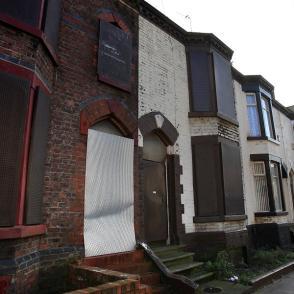The mindset that brought Ireland to its knees

Incompetence and negligence played a part in the calamity that has befallen us. By Vincent Browne.
There was rank incompetence on the part of ministers, most notably from the one who is now our chief minister, but also by his predecessor and the others.
Rank incompetence also on the part of senior civil servants, regulators, bankers, directors, businesspeople including business icons, lawyers, accountants (what a glorious contribution that body of super-chargers made to the collapse of business and of the entire financial system here and how they have got away with it!), stockbrokers, estate agents, developers (almost forgot them), medics (ie GPs, hospital consultants and their associates), publicans (the rip off ones), hoteliers, restaurateurs (the rip-off ones) and the media. And rank negligence by all of the above.
However, it was not only incompetence and negligence that got us into this mess. It was a mindset, a mindset that only through the unleashed dynamism of the market, the relentless energy of entrepreneurship, freed from the ‘dead hand’ of the state and regulation and, above all, relieved of the ‘burden’ of taxation, could we achieve success.
This was the way we could create wealth, boundless wealth, riches to create more riches and yet more riches.
Riches for the rich. And to unleash this spirit of enterprise there had to be incentives, lavish incentives: the prospect of big cars, trophy houses, holiday homes in Barbados, the odd chopper and executive jet. The symbols of real success. The new status.
The tax breaks were fantastic. In their book The Builders, Frank McDonald and Kathy Sheridan noted how in 2006 alone developers saved €260 million in stamp duty through a loophole in the tax laws.
Another tax break allowed investors in developments to write off all but the site costs of an apartment or townhouse against their total rental income for the first year, including rents from other properties owned, with any unused tax relief being carried forward indefinitely.
Office blocks for barristers were built on Church Street, beside the Four Courts, under this scheme, which meant barristers paid almost damn all for their accommodation.
One well-known barrister kitted out his office with the finest mahogany furniture and bookcases, on the back of this particular scheme, costing him nothing at all.
There were tax breaks for multi-storey car parks, hotels, holiday homes and student accommodation, and it wasn’t the students who were the primary beneficiaries. Capital gains tax was halved and income tax was slashed at a time when the economy was booming (that device on its own contributed handsomely to the current crisis).
There is a vignette of the Boom Ireland years which I think is illuminating of the prevailing mindset. It concerns ‘contracts for difference’, once described as the crack cocaine of the stock market.
Contracts for difference (CFDs) were devised to enable stock market gamblers to bet on the oscillations of share prices, with the stockbrokers taking the fees they would ‘earn’ on purchases of shares.
This is a massively risky business for the gamblers and is banned in the US.
In March 2006, the contracts for difference wheeze got under way here, and the Revenue thought that stamp duty of 1 per cent should apply to contracts for difference, in the same way as a 1 per cent stamp duty applies to share transactions.
Immediately, there were representations from the stockbrokers, the Irish Stock Exchange and the London Investment Banking Association (LIBA).
They told the then minister for finance, Brian Cowen, that "there would be severe consequences for the liquidity of the Irish stock market and therefore on the ability of Irish companies to raise capital here" if the stamp duty charge were not removed.
Cowen gave in immediately, forfeiting something like €300 million for the exchequer. The financial big boys cannot be turned down.
That mindset set the scene for the bank guarantee, an arrangement that socialised the gigantic debts of private banks because we wanted to defer to the international financial markets.
The Boom Ireland conceit persuaded us that there was no end to the extravaganza and that the extravaganza would trickle down to everyone, so it was fine.
There was indeed some trickle-down, but the big boys made the millions and billions.
And an inequality that always persisted here deepened. The view was - as expressed by minister Mary Hanafin - that this inequality lark was nonsense. Essentially hers and the prevailing mindset was: what did it matter if some became millionaires or billionaires provided the rest had enough?
It was conceded that some (the vulnerable) didn’t get enough, but ‘every effort’ would be made to ‘protect’ them.
This entirely missed the point that, even if the bottom rung of society had ‘enough’, the divide in income meant a divide in status, in respect, in influence, in health, in education, in life expectancy and in power.
The mindset also believed there was no alternative. More equality was a mirage. Certainly a threat to the Celtic tiger.
But Japan was fairly successful for a long time. And Denmark.
And society there was far more equal than in Ireland, so why could we not be more equal and successful at the same time?
We can create a better society, devoid of the madness that drove us to such excesses in the last decade and a half.
A society that is more fair, more equal, more kind and more democratic - but it won’t happen if nobody does anything about it.
